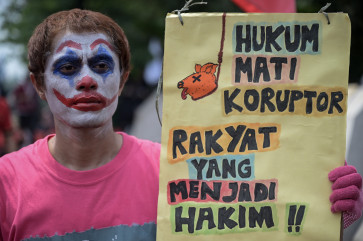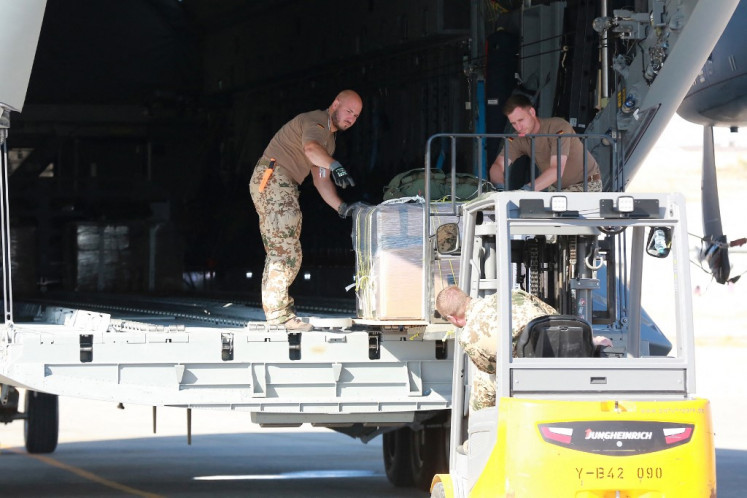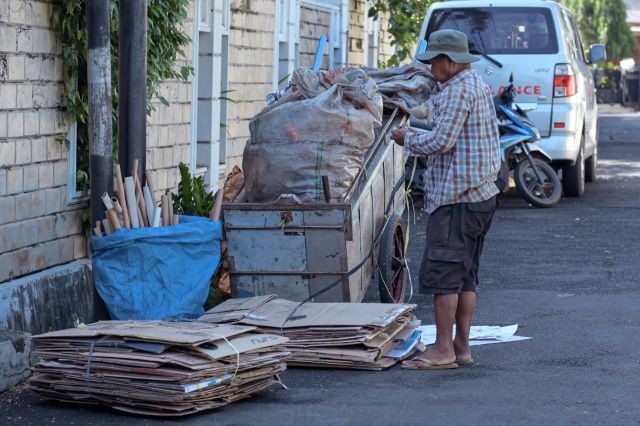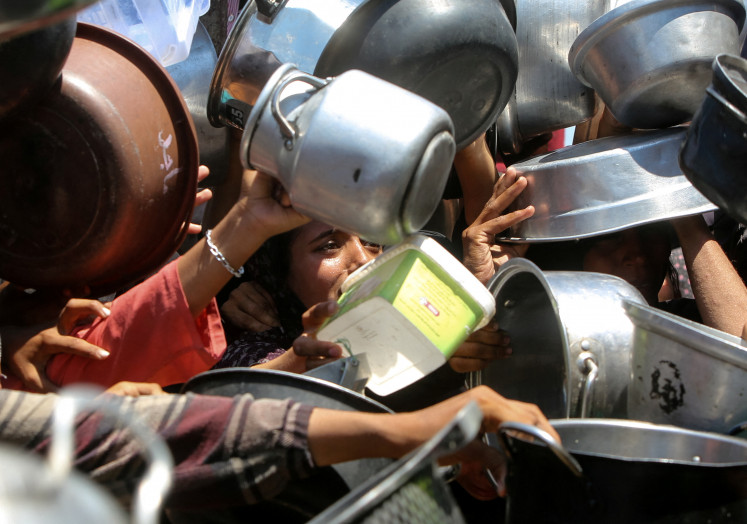Popular Reads
Top Results
Can't find what you're looking for?
View all search resultsPopular Reads
Top Results
Can't find what you're looking for?
View all search resultsInt’l cooperation needed to fight on narco-terrorists: VP
Vice President Boediono is calling for international cooperation to fight an emerging threat from terrorist groups that are forging alliances with drug syndicates
Change text size
Gift Premium Articles
to Anyone
V
ice President Boediono is calling for international cooperation to fight an emerging threat from terrorist groups that are forging alliances with drug syndicates.
“The mixture of drug cartels and terrorist groups could be more lethal, because they would have criminal and political motives,” Boediono said in a speech to open the 29th annual International Drug Enforcement Conference (IDEC) in Nusa Dua, Bali, on Tuesday.
To deal with the threat, Boediono called on nations in the region to step up cooperation. “No country can deal with this problem alone.”
He also said that the international conference would play a significant role in strengthening cooperation.
“I greatly expect that the conference will produce firm measures and strategic cooperation on how to deal with this new form of crime,” he said.
In his speech, Boediono also said he expected that Indonesia would be a drug-free country in 2015.
More than 300 delegates from 73 nations are taking part in the conference, which runs until Thursday.
Counterterrorism officials have warned that terrorist groups have developed new ways to operate, including establishing alliances with drug syndicates to finance terrorist attacks.
The officials also said that some terrorists had even hacked foreign exchange websites to fund their
activities.
The operations director of the National Counterterrorism Agency (BNPT), Brig. Gen. Petrus Reinhard Golose, said that slain suspected terrorist Abu Hanif had been incarcerated for a narcotics charge when he was recruited into a terrorist cell by another inmate.
Petrus claimed that there was a possibility that Abu used proceeds from his drug crimes to fund a planned terrorist operation before he was shot dead along with four others in Bali during a raid in March by officers from the National Police’s Densus 88 counterterrorism unit.
Citing another example, Petrus told The Jakarta Post in a recent interview that Fadli Sadama, who was involved in the brazen robbery of a Bank CIMB branch in Medan, once smuggled amphetamines from Malaysia to finance terrorism.
Separately, the chairman of the National Narcotics Agency (BNN), Comr. Gen. (ret.) Gories Mere said the three-day meeting would focus on devising intergovernmental measures to deal with narco-terrorism.
“We will discuss the major syndicates that have not yet been targeted. We will also discuss this new modus operandi of narco-terrorism.”
Gories said that one success story for international cooperation in drug interdiction was when BNN agents and National Police officers confiscated 40 kilograms of crystal methamphetamine worth Rp 454 billion in Batam, Riau.
Two Taiwanese nationals and four local residents were arrested in the drug bust.
According to the BNN, the number of people using illicit drugs in Indonesia has grown over the years, with the figure predicted to top 5 million this year.
A BNN survey said that the prevalence of narcotics users in Indonesia in 2009 stood at 3.6 million people, or 1.99 percent of the country’s population aged between 10 and 59.
In 2010, the figure rose to 4.02 million people, or 2.21 percent of the same age group; while in 2011, it has been predicted to reach 5 million people, or 2.8 percent.
Southeast Asia has been facing a growing drug problem following a boost in methamphetamine abuse and the expansion of poppy plantations in Burma and Laos, according to the 2011 report released Tuesday by the International Narcotics Control Board (INCB).










